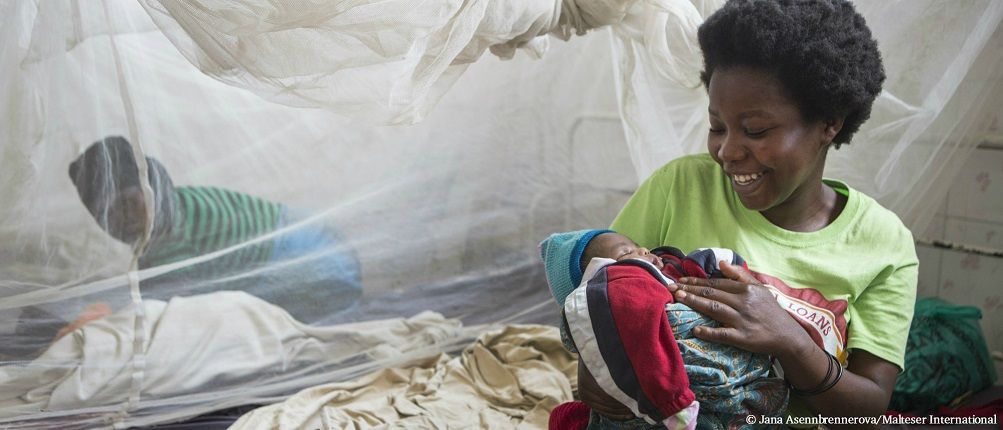
Strengthening the health system for all
The fragile situation in the Democratic Republic of the Congo is reflected the country's weak, or often non-existent basic infrastructure and services. Providing the population with adequate medical care poses a huge problem. When services are available, their quality is often poor, and their expense prohibitive for most people.
Since 2006, Malteser International has been working to strengthen the public health system in the northeast of the DR Congo. Over 250 Medical centers and 14 hospitals in 14 health zones receive financial as well as technical support to ensure that patients have access to a high-quality affordable health care. This intervention is an important contribution to improving the medical situation of around 2.4 Million people in the provinces of Ituri, Haut-Uélé, Bas-Uélé und Kasai Central.
The DR Congo has worldwide the lowest spending on health care per capita. The hospitals and health centers in the project region are often lacking in many essential ways. State investment in the health sector is minimal, meaning that facilities must take care of their own funding and that patients often have to pay a high price for treatment. Additionally, medical establishments in outlying areas have a problem in finding well-trained personnel, while the great distance, lack of money, and poor quality road network create difficulties with maintaining the supply of medications. Hospitals, meanwhile, often lack the required space and medical equipment to provide good quality secondary care. 50% of hospitals and health centers are lacking water and sanitation facilities.
In the DR Congo, about 8% of children (<5 years) suffer from acute malnutrition and over 42% suffer from chronic malnutrition. However, health care facilities often lack the knowledge and resources for prevention, early detection and treatment of malnutrition. Therapeutic feeding is often not available. Nutrient-dense food during pregnancy and for children, as well as improved hygiene practices and safe drinking water, are effective means of preventing malnutrition.
Improving the medical situation of a total of 2.4 Million people in the 14 supported health zones by providing high quality and affordable medical care:
- Improving access to quality health services for the population
- Securing the permanent availability of medications and medical equipment in medical establishments.
- Improvement of the range and quality of care offered in referral hospitals of 14 health zones.
- Strengthening health facilities in the early detection and treatment of malnutrition
- Improving quality management and monitoring of local health authorities
- Provision of subsidized medication, medical equipment and laboratory material to over 250 health centers and 14 referral hospitals
- Financial support of regional central pharmacies at provincial level for a quality-assured supply of medicines
- Provision of anthropometric equipment and therapeutic feeding to nutrition centers as well as training for improved prevention, early detection and treatment of malnutrition and the local production of therapeutic feeding (Corn-Soy-Blend)
- Education and training, as well as supervision of medical personnel at all levels of the health system, especially in maternal and child health, safe deliveries, correct diagnosis and treatment of diseases
- Renovation, expansion and equipment of selected medical facilities
- Support for local health authorities in the improvement of management, monitoring and evaluation through goal-oriented financial support
Country info
Capital: Kinshasa
Area: 2,345,410 km²
Population: ca. 102.3 million
Project data
Donors: EuropeAid, BMZ and private donations
Partners: Health centres and referral hospitals, local and national health authorities








